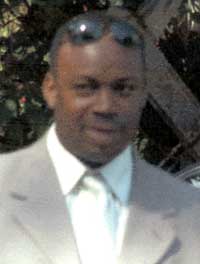
One thing is for certain. Christopher Dudus Coke is not an ordinary citizen of Jamaica. He, more than anyone else is a king maker. Without his support Bruce Golding, the current Prime Minister of Jamaica, would not be in that position. He, more than anyone else, is responsible for the relative calm which exists in Tivoli Gardens. He is powerful, influential and has a horde of supporters who are willing to do whatever he says. He is a "Don".
However, the United States, with whom Jamaica has an extradition treaty, considers him to be an international criminal, active in the illegal drugs and weapons trade between the U.S. and Jamaica. In August they made a request for the extradition of Christopher "Dudus" Coke to the U.S. to face these charges. The indictment says in part:
COKE leads an international criminal organization known as the "Shower Posse," with members in Jamaica, the United States, and other countries -- which he has led since the early 1990s. At COKE's direction and under his protection, members of his criminal organization sell marijuana and crack cocaine in the New York area and elsewhere, and send the narcotics proceeds back to COKE and his co-conspirators. COKE and his co-conspirators also arm their organization with illegally trafficked firearms. COKE has been named by the U.S. Department of Justice to the list of Consolidated Priority Organization Targets "CPOTs"), which includes the world's most dangerous narcotics kingpins.
COKE, 40, is charged with conspiracy to distribute cocaine and marijuana and conspiracy to illegally traffic in firearms. If convicted on the narcotics charge, he faces a maximum sentence of life in prison and a mandatory minimum sentence of 10 years in prison, as well as a fine of up to $4 million or twice the pecuniary gain from the offense. He also faces a maximum sentence of five years in prison on the firearms trafficking charge, and a fine of up to $250,000 or twice the pecuniary gain.
The U.S. claims to have a number of eyewitnesses who will testify to the involvement of Coke in these illegal activities. They are requesting that the Jamaican government hand him over for prosecution in the U.S.

To say the least, this request has been a headache for Prime Minister Bruce Golding who represents Tivoli Gardens in parliament. He has been accused of delaying the approval for extradition. However, Mr. Golding - who was answering questions posed by Opposition Member of Parliament Dr Peter Phillips on the issue - said the delay was because the US authorities had not followed proper procedure in issuing the request and were in violation of Jamaican domestic laws.
"Most requests that have been received depend for their process on the provisions of the Extradition Treaty with the particular country and on the Extradition Act," Golding told Parliamentarians. "This particular request is somewhat different in that it also relies for its validity on the provisions of the Mutual Assistance Criminal Matters Act. The Government of Jamaica has raised with the US authorities issues regarding its compliance with that Act."
The Prime Minister, as an example of the cooperation with the U.S., went on to state that a total 31 persons have been extradited from Jamaica between September 2007 when his party took office and now. Of this number, 19 persons were extradited to face drug offence charges, nine for murder, three for fraud and one for assault.
Golding also made it clear that he was not going to engage in discussions about the details of the extradition request concerning Coke. Opposition Members of Parliament continued unsuccessfully to press the Prime Minister for more details. He did however answer a question about when he became aware of the extradition request. He said the security forces informed him on August 24, 2009, that a special team from the US would arrive in Jamaica shortly to deliver the request. They arrived the following day.
The newspaper, the Jamaica Gleaner, in an editorial, also criticised the delay in handing Christopher "Dudus" Coke over to the U.S. authorities:
In the case of Mr Coke, the Government has for five months failed to sign an extradition order so that Mr Coke can have his day in court, locally or in the United States. It has asked the US authorities for more information about his indictment.
Most people see dithering and political delay. It erodes confidence. Perhaps we can look forward to the 'Coke amendment' in the extradition treaty.

The attorney for Christopher Coke is Tom Tavares-Finson. He expects that there will be some resolution to the request sometime early next year:
"You have to understand that the matter is coming to a head. It's been here since August, it cannot take the same period for the resolution to be made. It has to be completed in half that time, or less. So I am looking for a resolution early next year..." Tavares-Finson told the Sunday Observer in an exclusive interview.
Tom Tavares-Finson thinks that the extradition will not be granted, according to what he has seen of the request.
"Based on the allegations that I have seen, there is nothing there to provide a burden of evidence that the warrant for his extradition should be signed," said Tavares-Finson. "In fact, based on the allegations, I am of the view that the US authorities are not really interested in my client. But if anybody knows our attorney general, Dorothy Lightbourne, those persons who went to law school with her will tell you that she is a meticulous person and will examine the evidence based on merit. If it is to be signed, it will be signed. If it is to be denied, it will be denied."
Emphasizing that Dudus is not wanted for any criminal activities in Jamaica and is in fact a respected member of his community, Tavares-Finson said:
"Nobody has heard of him being involved in any criminal activity," Tavares-Finson said of his client. "Nobody has heard that he is involved in any extortion downtown. The police are not saying that. Nobody is saying that he is involved in any narcotics trade in Jamaica. The police are not saying that. Nobody is saying that. Is he involved in murder and 'brucking' of people's house across the island? They (police) are not saying that he is involved in the car racket. Nobody is saying that. But they are painting a picture of this man, who they say is a notorious criminal, why, because essentially he has overseen the transformation of a community riddled with criminality and violence into a place where people can make money."
In fact some prominent legal minds in Jamaica question the legitimacy of the extradition request, in light of the fact that the accusers of Christopher "Dudus" Coke are all anonymous.
Barry Frankson, who has practised law for more than 30 years, thinks that Jamaica should be able to refuse to go along with the request for extradition.
"Once properly tested and established that under our law such a person would not get a fair trial or no offence has been made out under our law, Jamaica should be bold enough to say no."
He added: "We have total confidence in our judicial system to do the right thing ... if the evidence is not sufficient for the extradition order to be made, then our judges should stand up to that.
"Where there are border-line cases, our citizens should get the benefit of it ... in many other jurisdictions the courts have stood up to the US.
Frankson believes that Jamaicans should be concerned about proceedings that are not open to scrutiny, particularly cases that have anonymous witnesses.
"(It's like) fighting in the dark. The witnesses cannot be cross-examined to examine the veracity of the statements made. You are not able to put them under the searchlight of truth," he said.
Dr Paul Ashley disagrees with his colleague. He thinks that it would be dangerous to expose potential witnesses to risk of discovery before a trial and says that "a requesting state is not bound to disclose the identities of its witnesses before the accused appears in their jurisdiction."
"In other words, they won't remain anonymous in the trial ... in the requesting state. The witnesses would be subject to cross-examination and everything else," he said.
Not surprisingly, Tom Tavares-Finson, Christopher "Dudus" Coke's lawyer agrees with Frankson.
"For example, this notion that they can come here and extradite people, which our Court of Appeal has agreed using anonymous witnesses; not even their names they are prepared to tell you.
"They can take you to America out of your country of birth on a piece of paper that say witness 'AB' and witness 'CB' say that on 'X' date you did call and say 'XY'. You think you could have sent that and give to America? You couldn't do that," argued Tavares-Finson, a criminal lawyer for some three decades.
Frank Phipps agrees with both Frankson and Tavares-Finson:
"Our law says each person who is charged with a criminal offence has the right to cross-examine the witnesses against him. That is our Constitution. Now, you can't cross-examine a piece of paper," quipped the noted litigator.
Phipps, who has been a lawyer since 1957, said requests have been made for witnesses to attend the proceedings in Jamaica but they have fallen on deaf ears. "That can't be right. As much as we are concerned about the security of people ... you don't throw out the baby with the bath water."
So the question remains. What will Jamaica do about Christopher "Dudus" Coke? Is he an international criminal being harbored by Jamaica from the U.S., or is he entitled to the protection of his country from a Super Power bent on prosecuting him for alleged crimes in the U.S.?
Also See: Dudus Wanted and Dudus Still Wanted <<----

Follow me on Twitter
 Friday, December 11, 2009 at 2:12AM
Friday, December 11, 2009 at 2:12AM 












